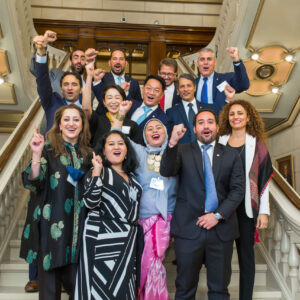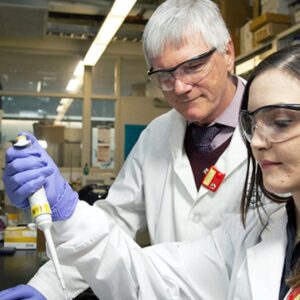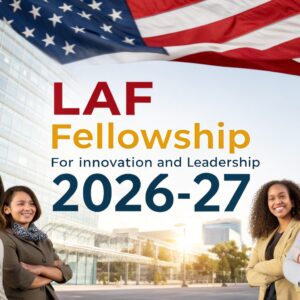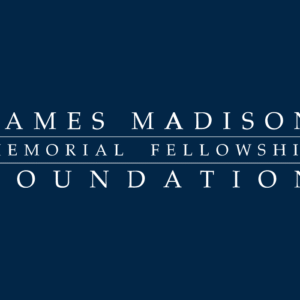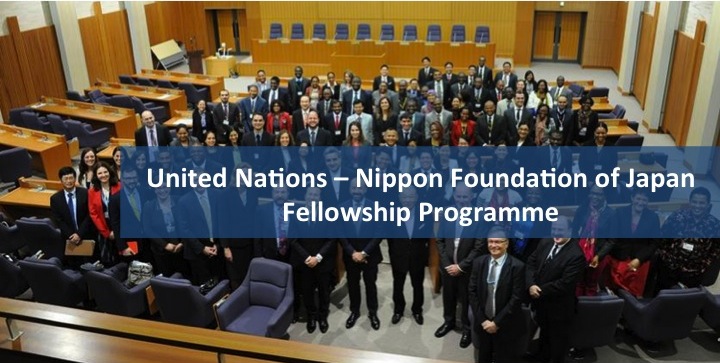
Let’s face it — the health of our oceans is under serious threat. With rising sea levels, plastic pollution, illegal fishing, and climate change wreaking havoc, ocean governance has never been more critical. But here’s the good news: the United Nations – The Nippon Foundation Fellowship Programme 2026 is looking for dedicated professionals from developing countries who want to step up and make a difference in marine policy, ocean affairs, and the law of the sea. And the best part? It’s fully funded.
What is the United Nations (UN)–Nippon Foundation Fellowship Programme?
Historical Background
Launched in 2004, (DOALOS) and The Nippon Foundation of Japan. This partnership was created to build capacity in developing states and empower ocean professionals with knowledge, skills, and networks to contribute meaningfully to sustainable ocean governance.
Collaboration Between the UN and The Nippon Foundation
The programme represents a strategic alliance between a global governance body and a philanthropic organization committed to maritime issues. This unique collaboration ensures fellows are not only trained academically but also practically equipped through direct UN engagement.
Goals and Objectives of the Programme
Capacity Building for Ocean Governance
The core mission is to equip government officials and mid-level professionals with advanced knowledge in ocean affairs, legal frameworks, and science-based policy tools.
Promoting Sustainable Development of the Oceans
It aligns with the UN Sustainable Development Goal 14 (Life Below Water), fostering equitable and inclusive practices in maritime management and conservation.
Why This Fellowship Matters in 2026
Climate Change and Marine Conservation
With the UN Decade of Ocean Science underway and the global spotlight on marine biodiversity, 2026 is a pivotal year for impactful action. Fellows will be on the frontlines of designing and implementing policy solutions.
Legal Frameworks and Maritime Security
From disputes over Exclusive Economic Zones to piracy and maritime security, legal expertise in ocean affairs is in high demand. This programme offers deep dives into UNCLOS and other international legal instruments.
Fellowship Structure
Duration and Timeline
The programme runs for 9 months, typically from March to December.
Programme Phases
- Academic Phase (6 months): At a host university where fellows conduct advanced research.
- Practicum Phase (3 months): Fellows join DOALOS at the UN Headquarters in New York.
Eligibility Criteria
Academic Requirements
Applicants must have a first-level university degree (e.g., Bachelor’s) and a demonstrated ability to undertake independent research.
Professional Background
You should be a mid-level professional working in ocean affairs, marine policy, or a closely related field, preferably with a government agency or research institution.
Age Limit and Nationality
You must be under 40 years of age and from a developing country.
Application Process
Where and How to Apply
Applications must be submitted via the official DOALOS website. Click here to access the official application page.
Required Documents
- Personal History Form (UN P11)
- Research Proposal (max 5 pages)
- Statement of Purpose
- Academic Transcripts and Diplomas
- Two Letters of Recommendation
- Employer Endorsement Letter
Application Timeline and Deadlines
Applications typically open in August 2025 and close in mid-October 2025. Early submissions are strongly encouraged.
Fully Funded Benefits
Monthly Stipend
The fellowship provides a generous monthly stipend tailored to the host country’s cost of living.
Travel and Visa Support
Round-trip airfare and visa costs are fully covered.
Tuition and Living Expenses
All tuition fees and daily living expenses are funded, allowing you to focus 100% on your professional growth.
Host Institutions and Placement
Prestigious Universities Around the World
Fellows are placed at top-tier institutions like:
- University of Southampton (UK)
- Dalhousie University (Canada)
- University of Cape Town (South Africa)
- University of Wollongong (Australia)
- Tokyo University (Japan)
Internship at DOALOS
The final three months are spent in New York, working closely with UN staff and attending global maritime meetings.
Research Themes and Areas of Focus
Law of the Sea
Explore topics such as UNCLOS implementation, maritime boundary delimitation, and marine jurisdiction.
Marine Biodiversity
Understand global efforts to protect endangered marine ecosystems and negotiate conservation treaties.
Climate Change and Ocean Policies
Study how rising temperatures and acidification affect maritime law, fisheries, and coastal resilience.
Coastal Management and Conservation
Delve into integrated coastal zone management, pollution control, and sustainable resource use.
Career Impact of the Fellowship
Global Networking
Connect with an elite network of ocean professionals, policymakers, and UN officials.
Long-term Professional Development
Many alumni have gone on to become national advisors, international consultants, and key contributors to global marine policy.
Policy Influence and National Implementation
Fellows are expected to return home and apply their knowledge to national ocean governance strategies.
Success Stories of Previous Fellows
Profiles of Alumni
- Dr. Sandra Tagoe (Ghana): Now leads coastal development strategy at Ghana’s Ministry of Environment.
- José Rodriguez (Philippines): Helped draft national marine spatial planning laws.
Real-world Impact in Home Countries
Alumni have improved fisheries governance, launched marine protection zones, and shaped international treaty negotiations.
How to Prepare a Strong Application
Writing a Compelling Personal Statement
Highlight your professional journey, commitment to ocean affairs, and vision for change in your country.
Academic and Professional References
Choose referees who know your work well and can speak to your ability to succeed in a high-level international programme.
Tailoring Your Research Proposal
Focus on a specific issue. Back it up with data, show policy relevance, and connect it to national priorities.
Common Mistakes to Avoid
Missing the Deadline
Applications submitted after the deadline won’t be reviewed — no exceptions.
Vague Research Interests
Be clear and concise. Avoid broad or generic research topics.
Poor Formatting and Presentation
Follow all formatting guidelines. Proofread thoroughly.
Frequently Asked Questions (FAQs)
Q1: Do I need to speak English fluently? A1: Yes. The entire programme is conducted in English. You may be asked to submit proof of proficiency.
Q2: Can I bring my family or spouse? A2: No. The fellowship does not support dependents or provide housing allowances for families.
Q3: Can I choose my host university? A3: You can indicate preferences, but placements are based on research fit and institutional availability.
Q4: Will I get a job at the UN after the fellowship? A4: There’s no guarantee, but many fellows go on to work with UN bodies, regional organizations, and national agencies.
Q5: Can I reapply if I don’t get selected? A5: Yes. Reapplications are welcomed and often strengthened by additional experience or updated research proposals.
Conclusion
This isn’t just another fellowship — it’s a stepping stone to becoming a global leader in ocean governance. With generous funding, world-class mentorship, and unmatched exposure, the UN–Nippon Foundation Fellowship Programme 2026 is your chance to make waves — literally and figuratively.
So, are you ready to be part of the solution? Apply here and start your journey toward transforming the future of our oceans.

